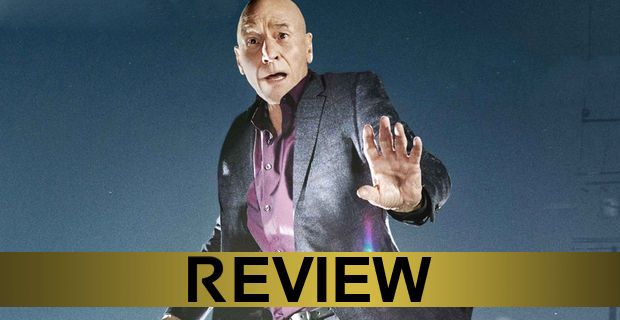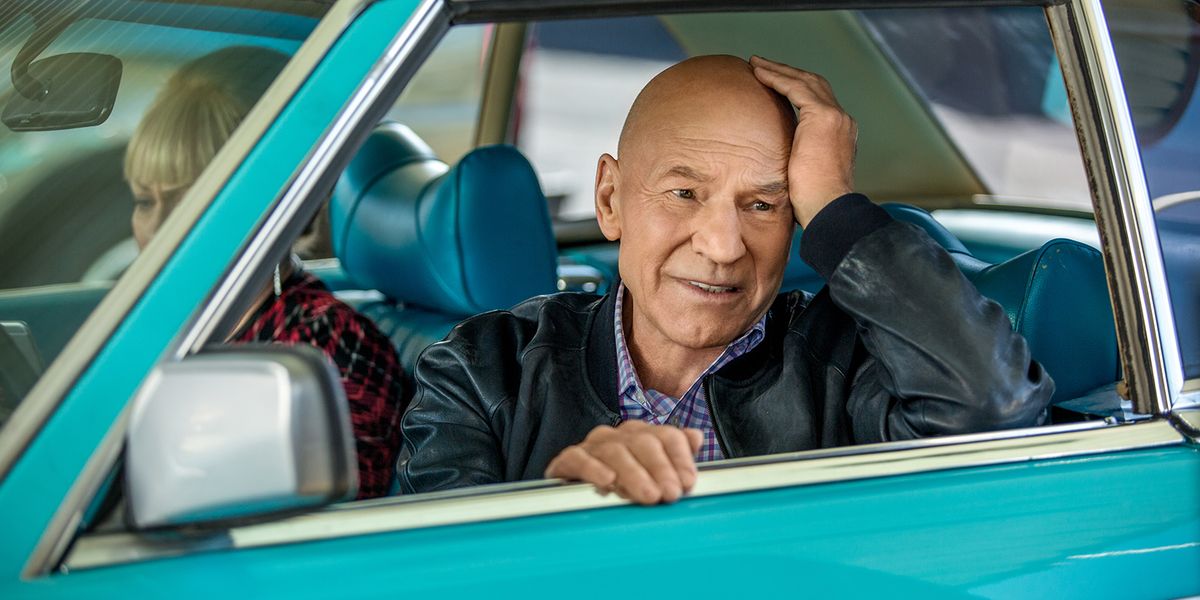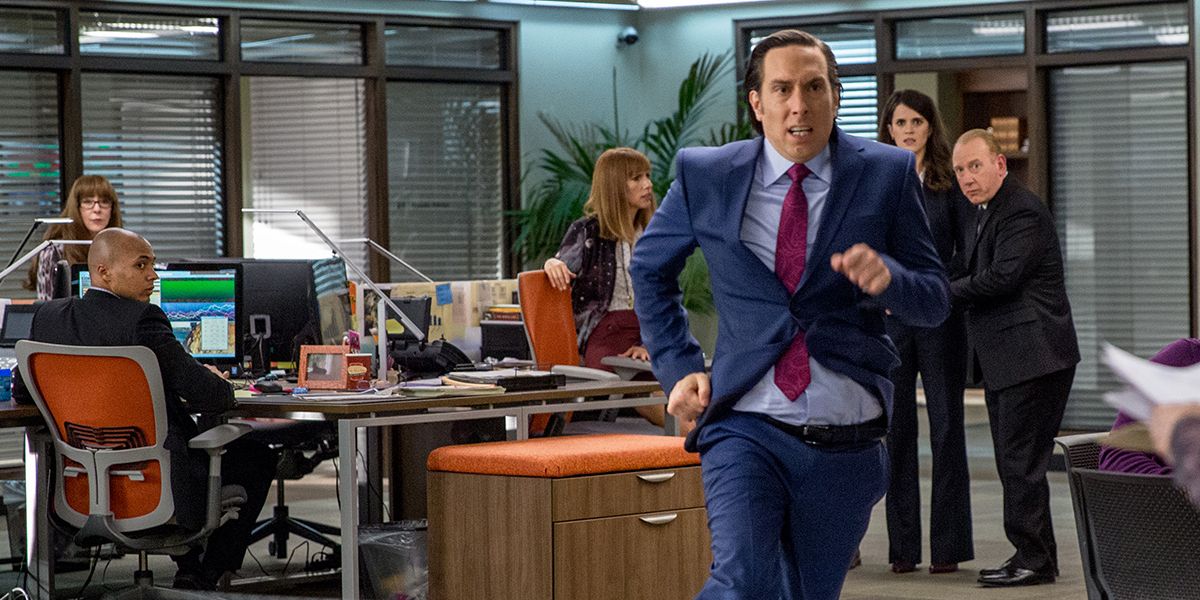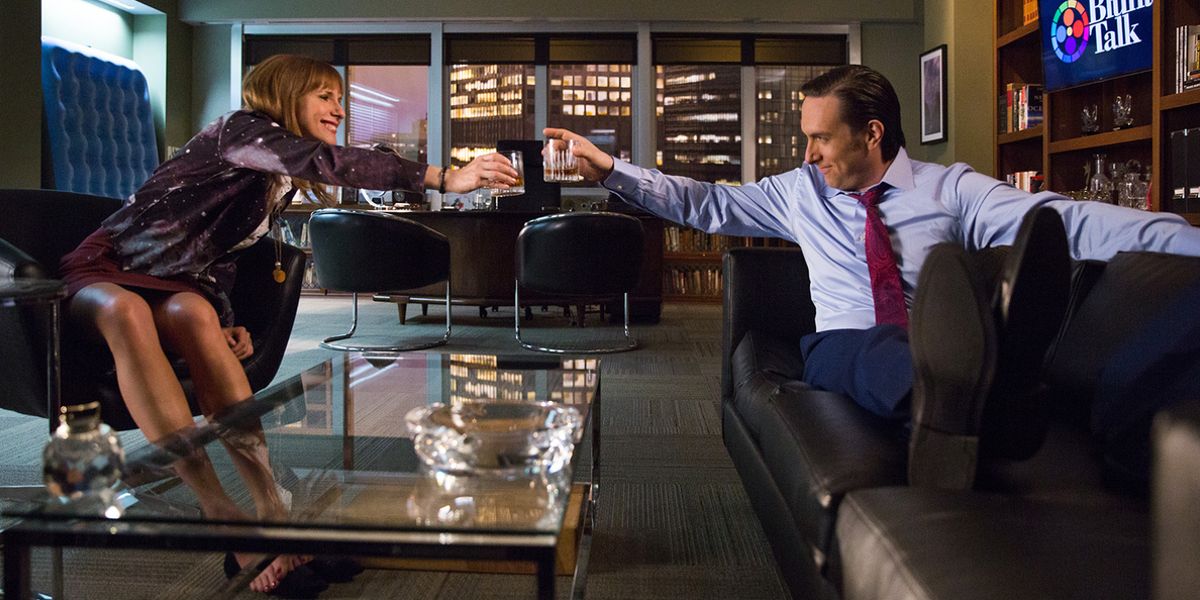[This is a review of Blunt Talk season 1, episode 7. There will be SPOILERS.]
-
It likely won't come as a surprise to those who have been watching Blunt Talk throughout its first season, but the show has a big heart. That's saying a lot for a series that began with a drunken Walter Blunt consuming an edible, soliciting a prostitute, and then assaulting a police officer before an impromptu performance of Shakespeare atop his vintage Jaguar.
After seven episodes, the series' opening sequence seems as far removed from what has subsequently transpired as its star is from having to buy shampoo. Yes, there have been plenty of encounters with illicit substances and illicit rendezvous with those who are romantically available and even those who (technically) aren't – not to mention open marriages, affairs with magicians, and the fetishizing of women's footwear – but the way in which Blunt Talk approaches such things is far more remarkable than the inclusion of supposedly "edgy" material. It's all just humdrum to the characters on the show, another defining aspect of the people they work with and another reason to offer help or, at the very least, an environment of non-judgment.
In the latest episode, 'Meth or No Meth, You Still Gotta Floss,' Blunt Talk takes the idea of compassion and makes it the central point of the episode. But it does so by taking the two primary focal points of the series – i.e., the personal and the professional – and splits the episode between dual storylines that blend the two in a way the show hasn't really experimented with before. So far this season, the series has had success with episodes centered on the workplace, and it has had more success with episodes centered on the mostly lonely lives of the individuals who inhabit said workplace.
Often, the workplace episodes have been focused on solving a specific problem. As a result there isn't time to just let the emotion of the moment sink in. But this is often where the series fires off its best jokes, because, let's face it, office environments are often fecund breeding grounds for humor of all kinds – nasty and otherwise – so it's no surprise, then, that the show, like its audience, would have a different sort of sense of humor in the office, than when it's at home.
Even though jokes and storylines can feel a bit more distracted when focused on the production of the show within a show, there is still a germ of compassion behind them that gives this series its unique footprint. Now, Blunt Talk isn't the first or only comedy to focus on the niceties between its characters – especially despite their inherent brokenness – but it is one of the few that were openly marketed as being an off-the-wall, edgy kind of comedy, only to reveal an altogether different agenda in its storytelling.
That is never more apparent than when the silliness of the episodes' title is juxtaposed with the actual content of the story. But that juxtaposition isn't relegated entirely to title and content. Instead, 'Meth or No Meth, You Still Gotta Floss' takes the two worlds the show is focused on and attempts to put them on simultaneous display, with some surprisingly affecting results.
Since the introduction of Teddy and his onset dementia, there has been little from Rosalie about her husband's actual condition. But following his brief hospitalization and disappearance – which leads to her and Walter embarking on a short road trip in search her missing spouse – it becomes clear that Rosalie is in a state of denial. Her ongoing relationship with Martin aside, the episode – much to its credit – plays her reaction to Teddy's disappearance straight, letting those around Rosalie the chance to deliver the episode's admittedly kind humor.
In this case, it's Walter's willingness to go an excursion to recover Teddy, and leave his office, his show, and the zero impact family behind – all for the sake of a friend's emotional wellbeing. There's plenty of humor in Walter's internal struggle over having to choose his friend or his show, and Stewart has the sort of grasp on his character he can walk a fine line between sincerity and selfishness and the end result comes off as endearing without being too cloying about it. The same goes for the rest of Walter and Rosalie's search for Teddy. The show flirts with a dangerous sort of sentimentality during scenes between Walter and Rosalie in the desert, and the acknowledgement she's losing her husband. But before it can go over the edge, Blunt Talk demonstrates it knows when to stop talking and let a moment just be what it needs to be.
This conflation of the personal and the professional is made more overt back at the studio, when everyone is given the opportunity to try on new roles in Walter and Rosalie's absence. Jim has been having a rough go of it all season, so when he's afforded the chance to assume Walter's position, he does so with glee, enjoying his temporary promotion to the head of the table, while Celia reluctantly assumes the role of Rosalie. Again, Dolly Wells proves to be one of the best things Blunt Talk has to offer, when, rather than pit Celia against Jim (since she's probably better suited to actually take Walter's place both in front of and behind the camera), the show again exposes its penchant for compassion by having her choose to support Jim rather than throw in against him for a position she also has a claim to.
The episode doesn't get everything right, there are pacing issues to Walter and Rosalie's search, but the bit about him getting a break from the Burbank cops was a nice way to segue into Walter's conflicted obligations. Meanwhile, Jim and Celia continue to be terrific supporting characters and seeing them placed in the position they were here put Blunt Talk in a unique position of giving its characters every chance to fail and to laugh at them, or to see relatively nice people be given a modicum of success in an environment that typically doesn't reward such niceties.
The series may have been billed as "edgy" but, if anything, it's the show's willingness to be charitable to its flawed characters that is its actual defining characteristic.
--
Blunt Talk continues next Saturday with 'Who Kisses So Early in the Morning?' @9pm on Starz.




